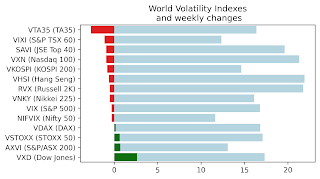Apparently Thomas Peterffy was not swayed by CME Group's Terry Duffy phonecall, and published an open letter to CFTC in today's issue of the Wall Street Journal (also
available on IB's website)
In the letter, Mr Peterffy proposes to isolate Bitcoin futures clearing funds from all other deposited funds to prevent financial contagion. I think this risk is something that can be addressed with higher (maybe even 100%) margin requirement for bitcoin futures, but it is more important to understand why one of the top leaders of derivatives trading is not buying this argument.
The letter presents several arguments, which I will quote in a different order than they appear in the letter.
1 - "Instituting daily price move limits on cryptocurrency derivatives does not solve the problem. In a runaway upward market for example (like the silver market in the 1980’s caused by the Hunt brothers), the futures price gets locked limit-up day after day with little or no trading and the short sellers are unable to cover, leading them (and potentially their clearing firms) to ruin."
I completely agree with the statement, and daily (or whatever the time interval) trading pauses just buy time, and do not prevent clearing firms from going bust. However in this respect XBT futures are no different from other products - trading halts mitigate risk, they don't eliminate it. So I don't agree with this argument.
2 - "Margining such a product in a reasonable manner is impossible. While the buyer (the long side) of a cryptocurrency futures contract or call option could be required to put up 100% of the value to ensure safety, determining the margin requirement for the seller (the short side) is impossible. "
This is no different from other products as well - the seller of ESZ7 contract also faces the same, potentially unlimited risk, if S&P 500 index goes to 20000. And yet, you can as easily short futures as buy them. So I disagree with the second argument as well.
3 - "There is no fundamental basis for valuation of Bitcoin and other cryptocurrencies, and they may
assume any price from one day to the next. This has been illustrated quite clearly in 2017 as the price
of Bitcoin has increased by nearly 1000%. "
I would argue that one person's fundamental basis is another person's bs, and people disagree about fundamental valuations of different products all the time. In fact the very reason why markets exist is because people disagree on valuation. And just like other futures products, XBT futures "may assume any price from one day to the next." Do stocks have fundamental basis? In 2017 the stock of Polarityte, Inc. ticker symbol COOL, rose about as much as bitcoin. Disagree with the third argument.
4 - "Cryptocurrencies do not have a mature, regulated and tested underlying market. The products and
their markets have existed for fewer than 10 years and bear little if any relationship to any economic
circumstance or reality in the real world. "
This is a "we don't know enough about bitcoin to understand the risks" argument, since 10 years ago we did not have any cryptocurrencies at all. However there
is a regulated market, or at least as regulated as FX spot market. Also bitcoin market is a tested market - there are numerous exchanges offering spot, futures, and even
options trading. The leverage offered is typically 2x or even 3x, although I think it is too generous.
Even the point that market is not mature is not quite right with me. How long does it take for a market to mature? How would we know? Bitcoin is few months away from it's 9th birthday, and in 2022 we will celebrate bitcoin bar mitzva and declare it a mature market?
We will have to wait and see how this all will play out, but this is certainly very exciting to have a completely different asset class to be listed on a major exchange.





